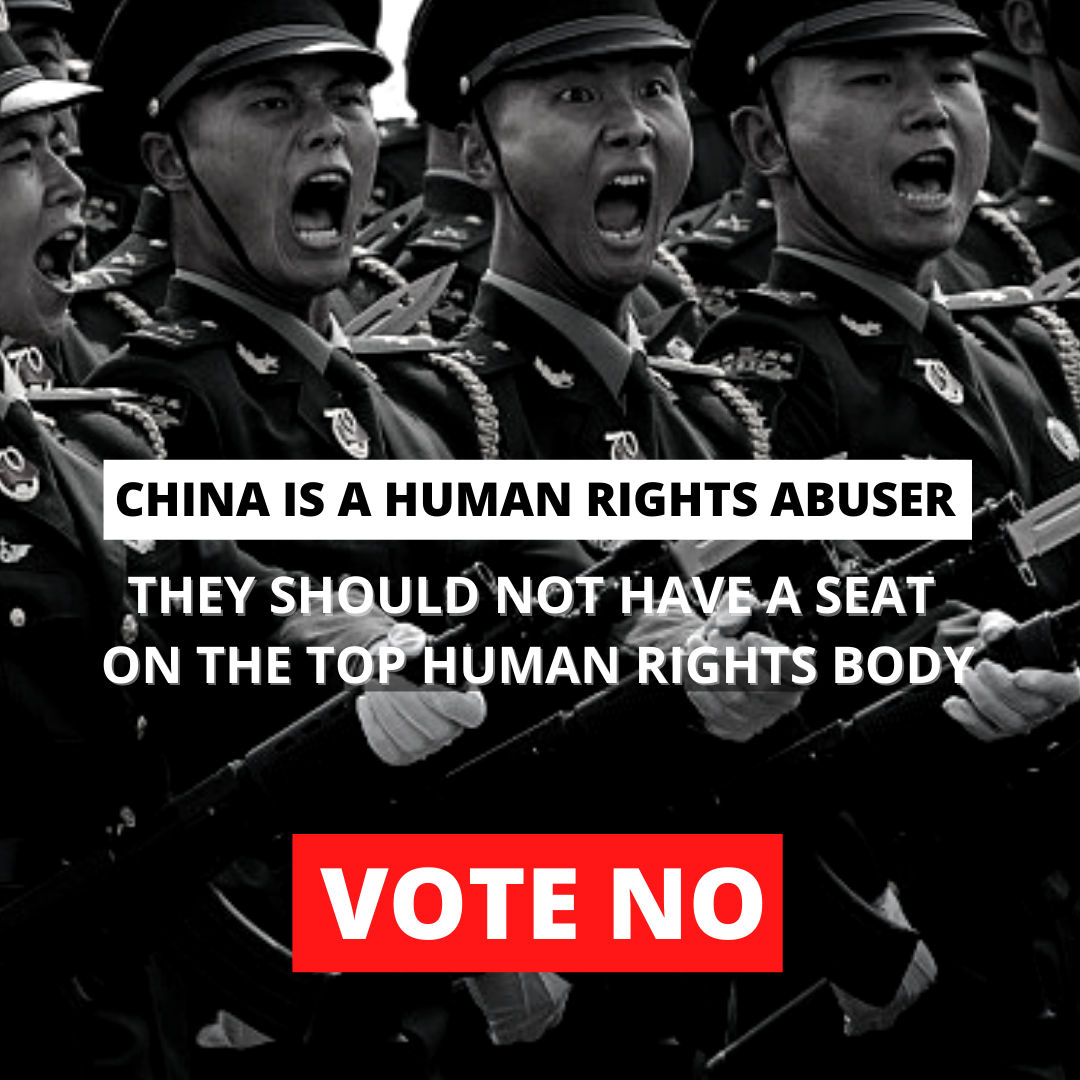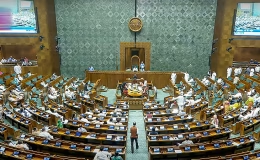Over 100 Tibet groups urge UN States to “take a stand” and ensure China is not elected to the top human rights body next week
The catalogue of evidence of China’s brutal assault on human rights in Tibet, East Turkestan, Hong Kong and Southern Mongolia should in itself be enough to ensure world governments vote no to China’s bid for a seat on the UN Human Rights Council. When coupled with abject further failures to cooperate with the United Nations, and systematic efforts to undermine freedoms globally, it is utterly untenable to suggest that China is a fit candidate for the UN Human Rights Council, a coalition of 115 Tibet groups said today.
On 13 October 2020, the UN General Assembly will elect 15 new members to the 47-Nation Human Rights Council that will serve for three years. For the Asia-Pacific regional group, there are 4 seats available, for which China is vying for one. A Coalition of over 100 Tibet groups are calling on Members of the General Assembly to heed this opportunity and deny a seat to China’s abusive government, under which Tibet has become the second least free place in the world for civil and political rights, after only Syria [3].
Pema Doma from Students for a Free Tibet said: “For decades we have witnessed China’s bullying at the United Nations, both against Member States and civil society organisations working tirelessly to promote and protect human rights. By taking a stand against the Chinese government, world leaders will prove that China’s tactics shall not mask the truth about the human rights crisis in Tibet and show the millions of victims of human rights violations living under Chinese rule, including in Tibet, that they have not been forgotten.”
Gloria Montgomery from Tibet Advocacy Coalition said: “For too long China has occupied Tibet, and without sufficient consequence, led a brutal crackdown against the Tibetan people. The world appears to now be waking up to the reality that something more serious needs to be done to counter the extremity of China’s bullying tactics and blatant refusal to cooperate with the UN Charter and International Law. The international community must send a clear message that it will not reward China, one of the world’s worst human rights abusers, with a seat on the top UN rights body.”
Tenzin Jigdal from the International Tibet Network said: “Given the overwhelming evidence of China’s repeated failure to abide by UN principles, anything short of a No Vote on 13 October constitutes an intentional disregard by World leaders of China’s serious human rights abuses and will send a message of approval of Beijing’s illegitimate activities.”
China has now occupied Tibet for over seventy years; seven decades in which they have sought to crush the Tibetan identity, weaken the influence of the exiled Dalai Lama, and assimilate Tibet into mainland China. Yet for generations, Tibetans have continued to actively resist Chinese rule, through protests, non-violent direct action, or by escaping into exile.
China’s response to dissent has been brutal; the elevation of Xi Jinping and China’s 5th generation leaders in 2012 brought no positive changes in human rights, rather the reverse. During the past decade, the Chinese government has been increasingly hostile towards human rights defenders, unleashing a harsh crackdown on civil society, especially in Tibet. In July 2015, these policies resulted in the death in custody of prominent Tibetan Buddhist leader, Tenzin Delek Rinpoche who had been persecuted and incarcerated for life on trumped-up and politically motivated charges. The Chinese authorities continue to ignore calls, including by the UN Committee against Torture, to investigate the circumstances surrounding his death and hold those accountable to justice.
The human rights situation in Tibet has reached an unprecedented low. Since the start of 2020, over half a million Tibetans have been coerced into militarised labour facilities in Tibet, where they are subjected to indoctrination, ideological training, intrusive surveillance and mass relocation.
The General Assembly is required to take into account the candidate States’ contribution to the promotion and protection of human rights, as well as their voluntary pledges and commitments in this regard. With the election taking place in a matter of days, China is one of four states that have yet to submit their voluntary pledges in support of its candidacy.
Other States renowned for their human rights abuses, Saudi Arabia, Cuba and Malawi, are also standing for election but have failed to submit pledges in the belief that they too are above UN protocols. Meanwhile, other governments, such as the United Kingdom, submitted their voluntary pledges over 6 months ago.




